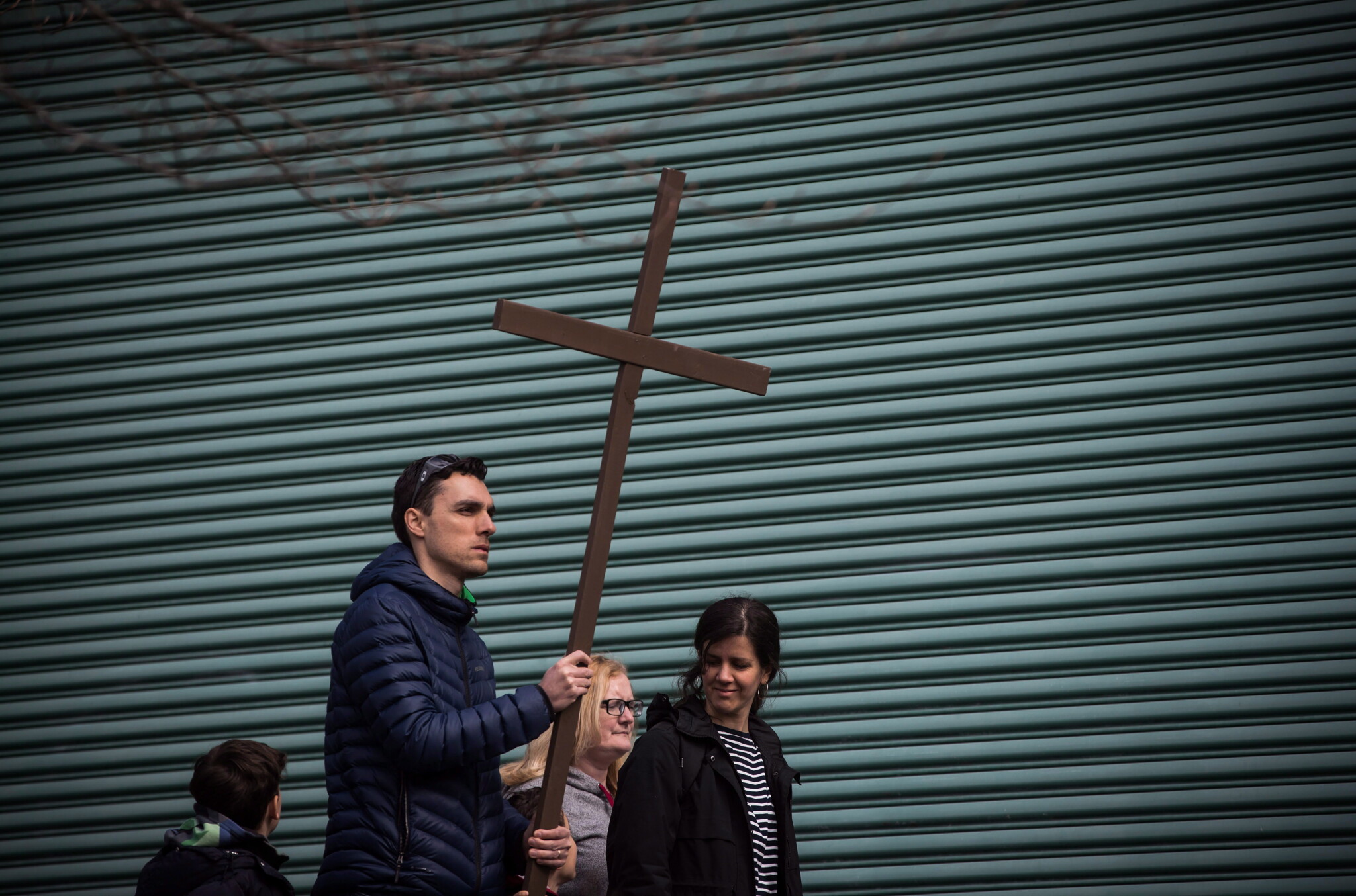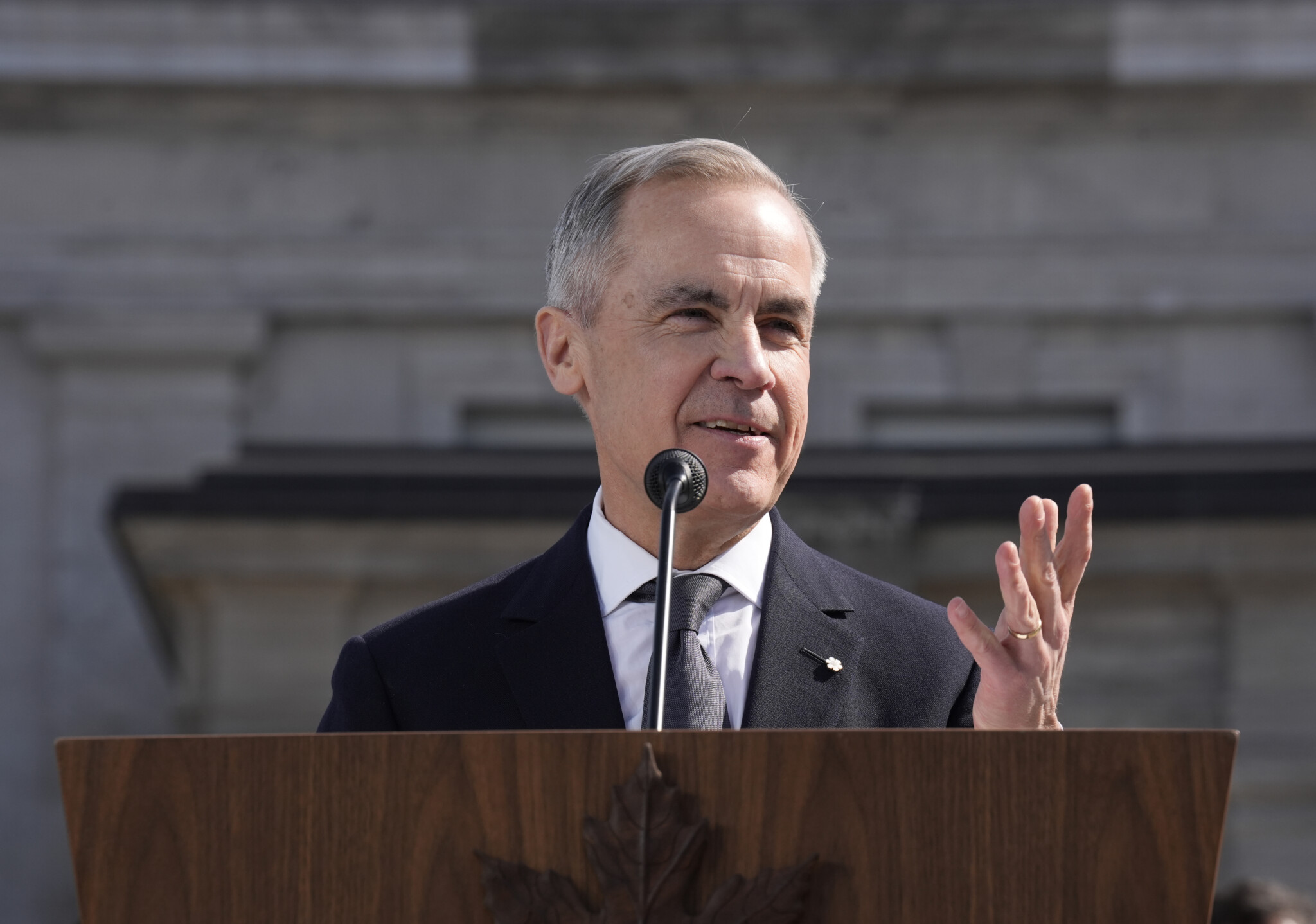Mark Carney, like so many prime ministers before him, has made no secret of the fact that he’s a Catholic. What is different, though, is that he appears to be that strange type of Canadian Catholic who actually goes to church.
Studies by Cardus, the think-tank that I work for (and who hosted Carney for a recent conversation about faith, politics, and money) publishes research that studies the religious character of Canadians, and Carney, who notes that he goes to mass every week, fits our sociological definition of a “religiously committed” Christian. What does this mean for Canadian politics? How might we evaluate the role that his faith plays, or will play, in his life in political office?
There are three modes, which taken together, can help us make sense of this.
Personal piety
The first is his personal piety. This is the mode that most Canadians are totally content with. Carney goes to mass. Good for him! He probably prays. Great! He, like so many of his co-religionists, probably gives a good deal of money away. Fantastic, religious people are wonderful!
But it’s worth taking a moment to recognize something wholesome about Carney’s relationship with his church. In his acceptance speech, Carney used a co-parishioner, Bob, as an example for a point he was going to make about tariffs and leadership. But before he got to the point he noted “Bob goes to my church. Actually, I go to Bob’s church because he goes there a lot more frequently than I do.” I point this out to show how Carney’s statement here shows how faith and politics aren’t as separate as some might wish, but also to note that this is actually a humble statement by Carney and an indication that, at least on some level, he seems to have imbibed Christian teaching on humility.
The degree to which someone is personally pious is usually a gimme in Canadian public affairs. People might not share those beliefs, but they are generally totally fine with it.
But people are by nature social and don’t generally operate their lives in hermetically sealed private and public vaults. Faith also impacts the way we conduct ourselves in public affairs, whether that’s in business, the arts, in family life, and yes, in politics.
So how might we evaluate that?
Social teaching
For Catholics, this evaluation is generally made by understanding the degree to which their public and private life aligns with Catholic teaching. Many people might imagine that the church only talks about the nature of God, or that we are focused on sex (I mean, we are, but not in the way you imagine), but there is a wide range of topics on social doctrine, economics, labour, the dignity of women, social institutions, fatherhood and manhood, the nature of human life, religious freedom, the environment, etc. That Christian social teaching, and for those who haven’t read it, you’ll probably find it surprising and remarkably fresh, even if you’re deeply hostile to faith per se. So how do Carney’s record and statements align with this vision?
On two subjects it’s clear that he’s extremely influenced by Christian social teaching: money and economics, and the environment. Much of his work, including his tome, Values, is an attempt to integrate a vision of the work, business, economics, and the environment into one whole. Integralism isn’t just a right-wing thing. The real question isn’t “Is he a Catholic integralist?” Everyone’s an integralist, even the most secular humanists among us. Liberalism too is an integralist vision rooted in commitments and assumptions that are no less held by faith than Christian commitments, even as it relies on cultural assumptions that are, at heart, Christian. The question is, are a given person’s vision and actions coherent and conducive to human flourishing, or are they riddled with contradictions, and something which is likely to lead to loneliness and despair?
And when it comes to Carney, while he is personally pious, he is a bit of a syncretist (as, I think, many Canadians are) between two religions which overlap, and yet which are in deep tension with one another: a liberalism that sees the individual as autonomous and autonomy as an end in itself, and Catholicism which sees people as free individuals directed toward higher goods—charity, justice, etc.—than themselves.
And I think it’s fair to ask questions about the consistency of Carney to each of these religions. He’s largely gotten a free pass from the media on his Catholicism because on the two questions Canada’s generally media worries about the most—sex and life—Carney’s either been silent or has adopted the religious doctrine held by most of Canada’s cultural influencers. Now, to be clear, I think many of us in North America suffer from the same types of inconsistencies—liberals too. And Christians are totally capable of syncretism with all kinds of doctrines.
But is such inconsistency always syncretism? Is there another explanation? Perhaps. There is a case in which even the most consistent Catholic could be charged with syncretism if the sole measure of their fidelity to their religion is their policy positions. That’s because politics is largely an effort in what the British political philosopher Bernard Crick describes as “the peaceful conciliation of diverse interests.” This brings us to the third way in which we should evaluate Carney’s Catholicism: his practices of statecraft.
Statecraft
While some might wish to take pot-shots at political actors for the inconsistencies of their faith and politics (and others might celebrate them) there is a running thread within Christian social teaching which understands the critical importance of prudence in the practice of politics.
Those unfamiliar with the Christian texts that inform Christian social doctrine might think that Christianity preaches uncompromising zealous political practice. But those most steeped in the tradition (and Canadian readers need look no further than the recently departed Ian Shugart), are aware that both the history of Christian political actors and scriptures themselves are full of examples of believers who, while extremely pious, and extremely committed to an integrated view of faith and politics, who understood that all action, including political action, takes place within limits. The fancy word that you usually hear here is “prudence. And far from being something to avoid, it has always been understood as a cardinal political virtue by Christians. The scriptural story of Namaan (the gentile prime minister of the godless Assyrian empire) who, when asked what he should do when he was required to enter into a pagan temple to worship an idol, was told to “go in peace,” is one example. Another is Daniel, an extremely pious man and high-ranking political official in the Babylonian empire, who nonetheless still served, as the late Shugart half-jokingly quipped, as “the deputy minister of the occult” for an egotistical emperor. There are, of course, many other examples.

Nicola Bocca carries a cross during the Way of the Cross procession at Queen Elizabeth Park in Vancouver, B.C., on Friday March 30, 2018. Darryl Dyck/The Canadian Press.
Any evaluation of a person’s faith and politics needs to consider not just what they believe, nor what they implement, but how they practice their politics. Do they lie, or are they truthful in their speech? Are they corrupt? Or do they conduct themselves in ways that use the state and its members to enrich themselves or increase their profile? Do they make wise decisions that work to the common good within the material and cultural possibilities of their state and its place among the nations? Or are they rash, foolhardy, and ignorant of their limits? The answer to these questions, as much as Carney’s beliefs or policies, matter.
What do we make of Carney on these grounds? Here are a few things to watch for over the course of his premiership.
Carney has described himself as “first and foremost a pragmatist.” Thus, the elimination of the carbon tax despite his clear and long-standing commitment to it. The question people will want to watch is whether such actions are indications of reasonable, practical response to the cultural realities within Canada, or whether they are simply another exercise of self-interest and commitment to power over principle that many see as the core principle of the Liberal Party.
But pragmatism is not prudence. Prudence understands limits and does what it can to move things towards justice. Pragmatism punts off the question of principle and focuses on self-interest.
If Carney is looking to show Canadians that he is a man of prudence aimed at the common good and not just another example of a politician who is happy to compromise deeply held principles to maintain power, there is a place he could start. And that’s the Canadian MAiD regime.
While there are many in the Canadian establishment who wish to disqualify religious reasoning as grounds for limiting MAiD (which is a topic for another day), the fact is that many Canadians—religious and otherwise—are deeply concerned about a policy that was premised on exceptional circumstances (those with “irremediable suffering and a reasonably foreseeable death”) but which has now become not just routine but a ghoulish example of what happens when killing rather than care becomes the normative pattern for end of life medical practice.
If Carney wanted a place to start with living out his Catholic faith in politics in a way that aligns with reason, and with the widely held fears about the progression of MAiD in Canada, he could start by taking a series of practical steps to re-establish the limits on Canada’s now out of control MAiD regime. The first of those steps could be to permanently rule out the extension of MAiD to those with mental illness, indicate that he will not consider advanced directives for MAiD, rule out the extension of MAiD to children, share accurate data on MAiD, re-establish the guardrails for those seeking MAiD, and ensure that MAiD funding does not draw funds away from palliative care. And that’s just a start.
More than six in 10 Canadians are concerned about euthanasia becoming a replacement for adequate care, especially for the disabled, and this transcends religious commitment. Taking serious action on this issue could be a way for him to live both his liberal and his Catholic commitments.
Much ado about media
One final word, and that’s on the way the media handles Carney’s faith. There are legitimate questions about the inconsistencies in Canadian media’s handling of politicians’ faith, and people can be forgiven for asking why Catholics like Andrew Scheer receive such different treatment from Carney by the media. That’s all well and good, and certainly concerns about consistency should be applied to media in the same way that they’re applied to people’s worldviews and their impact on politics. But instead of whining I’d like to encourage Canadian media to lean into this topic a little more.
Generally, the concern is about the impact of a politician’s religion on their policy. But if the media are actually interested in helping Canadians truly understand their leaders, perhaps they might want to ask some questions the other way, and ask Carney about how he sees the consistency of his faith with his politics. And they shouldn’t settle for the “I keep them separate” answers that they themselves want to hear. They might want to ask some harder questions about the reasons and the grounds for the compromises he’s willing to make. If nothing else, it will give Canadians a clearer understanding of the nature of the man who’s their prime minister.
It’s always helpful to know what serves as true north for any politician. And if Carney is seeking to steer the battered ship of Canada through the storms of the next few years, it’s also helpful to know the whats, whys, and hows of when he’s willing to deviate from that.









